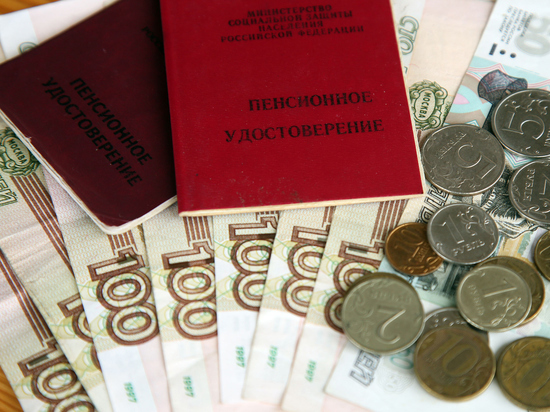It became known to whom and by how much pensions will be indexed in April
[ad_1]

Experts explained the details of upcoming payments
The government has officially announced that from April 1, indexation of social pensions by 3.3% will take place in Russia. Earlier, the Ministry of Labor came up with such an initiative. Now the corresponding resolution of the Cabinet of Ministers has already been published on the portal of legal information. Which of the Russians will be affected by this decision and why the indexation is planned in such a modest amount, far behind the annual inflation rate, experts explained to MK.
Recall that social pensions are not paid to all elderly Russians. They are assigned to those citizens who do not have sufficient proven experience or points for the appointment of an old-age insurance pension. Such pensions are appointed 5 years later than usual, that is, at 70 and 65 years old – for men and women, respectively. Also, these payments are received by Russians with disabilities and those who have lost their breadwinner.
In total, there are about 4 million such people in our country, 4 million pensioners will receive indexed payments. And almost 15.6 billion rubles are provided for the April indexation in the budget of the Social Fund.
A separate question: why is the scale of indexation so modest – only 3.3%, while the official annual inflation is at the level of 11%?
“The insignificant amount of indexation is due to the fact that social pensions are due to people who have never worked anywhere, have no work experience, and who were previously denied the right to an insurance pension by the state,” explains Alexei Zubets, a professor at the Financial University under the Government of the Russian Federation. Among such people, according to the expert, there are a lot of characters leading an asocial or idle lifestyle. “Accordingly, social pensions are paid by the state on a residual basis,” the professor notes.
However, the government thinks otherwise. Earlier, the press service of the Ministry of Labor explained that, as a rule, the indexation of social pensions is carried out once a year – on April 1. However, in 2022, the authorities took into account the high inflation rates in the first half of the year and decided to increase a number of social benefits in stages. Including the indexation of social pensions for 2022 takes place in two stages: on June 1, 2022 they were increased by 10% (as well as for all other non-working pensioners), and from April 1 they will be indexed by another 3.3%. Thus, in general, for the year, the growth of these payments will be 13.6%, which covers the current inflation.
As for the funds allocated for these purposes (about 15.6 billion rubles), then, according to Alexander Safonov, a professor at the Financial University under the Government of the Russian Federation, this is not very big money for the state treasury.
In general, according to the latest statistics, now the average social pension is 12,125 rubles, while for working pensioners it is less and equals an average of 8,993 rubles. For comparison, the average old-age insurance pension is 20,678 rubles. At the same time, in accordance with the law, from January 1, 2023, the cost of living for pensioners in Russia has been increased by 3.3%, to 12,363 rubles. Thus, with the April Fool’s indexation, the provision of the law on pension provision is implemented, according to which the social pension should be equal to the pensioner’s subsistence level.
According to Professor Safonov, if social pensions are raised even more, this may negatively affect the motivation of people to earn an insurance pension. As can be seen from the figures, the gap between the social pension and the average old-age pension is only 8.3 thousand rubles. Therefore, it is more fair to increase insurance pensions at a faster pace here, the expert believes.
“It’s not worth skimping on increasing social pensions for older non-working Russians,” says economist Andrey Loboda, director of external relations and corporate social responsibility at BitRiver. According to him, the number of recipients of social pensions includes a huge number of women, many of them gave years of active life to raise children, including in large families. In addition, not all citizens were able to quickly adapt to the market and find work in the new realities 30 years ago. “The state should not leave them to the mercy of fate just because they did not have enough experience for an insurance pension,” the expert believes.
[ad_2]
Source link






